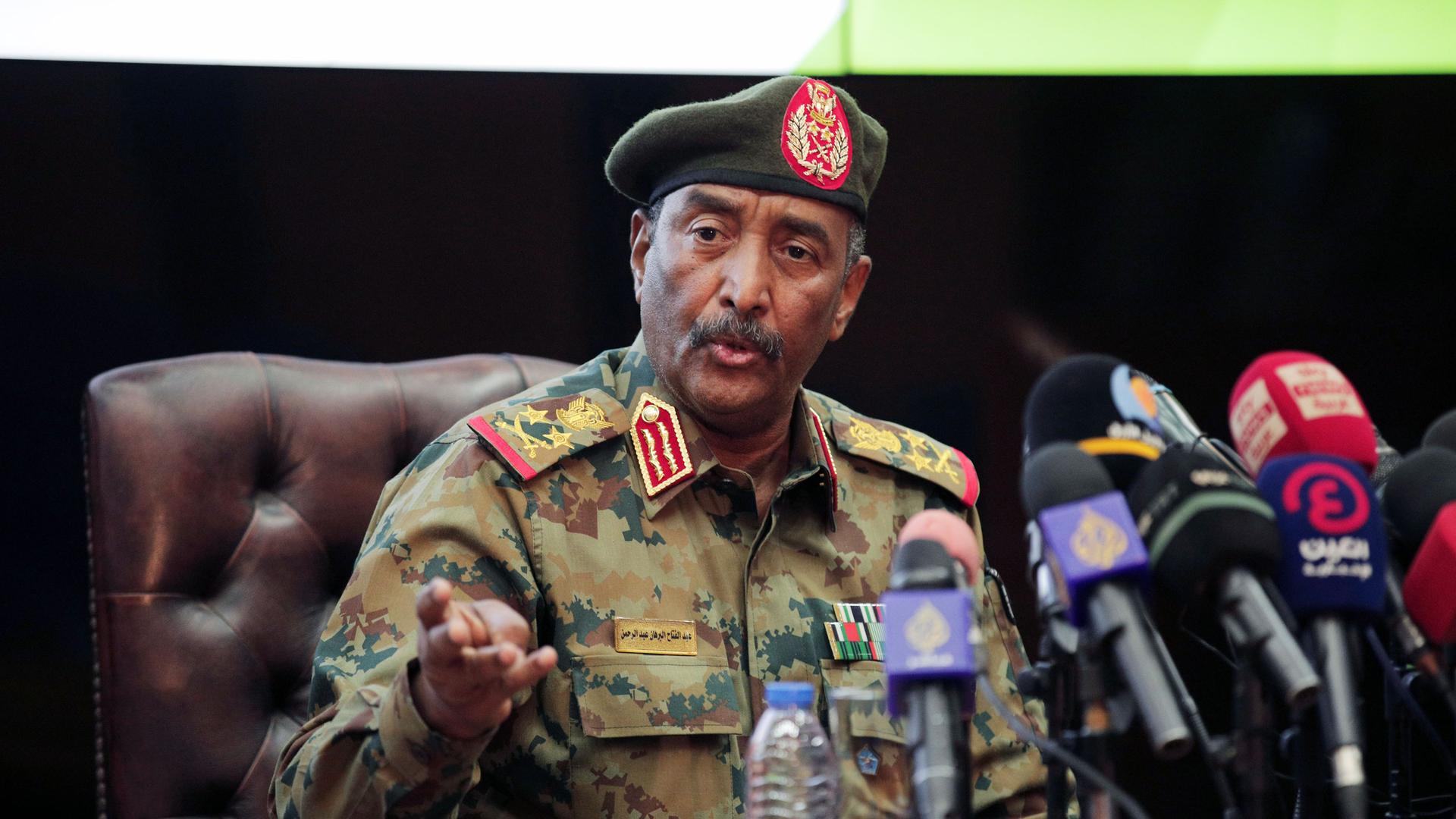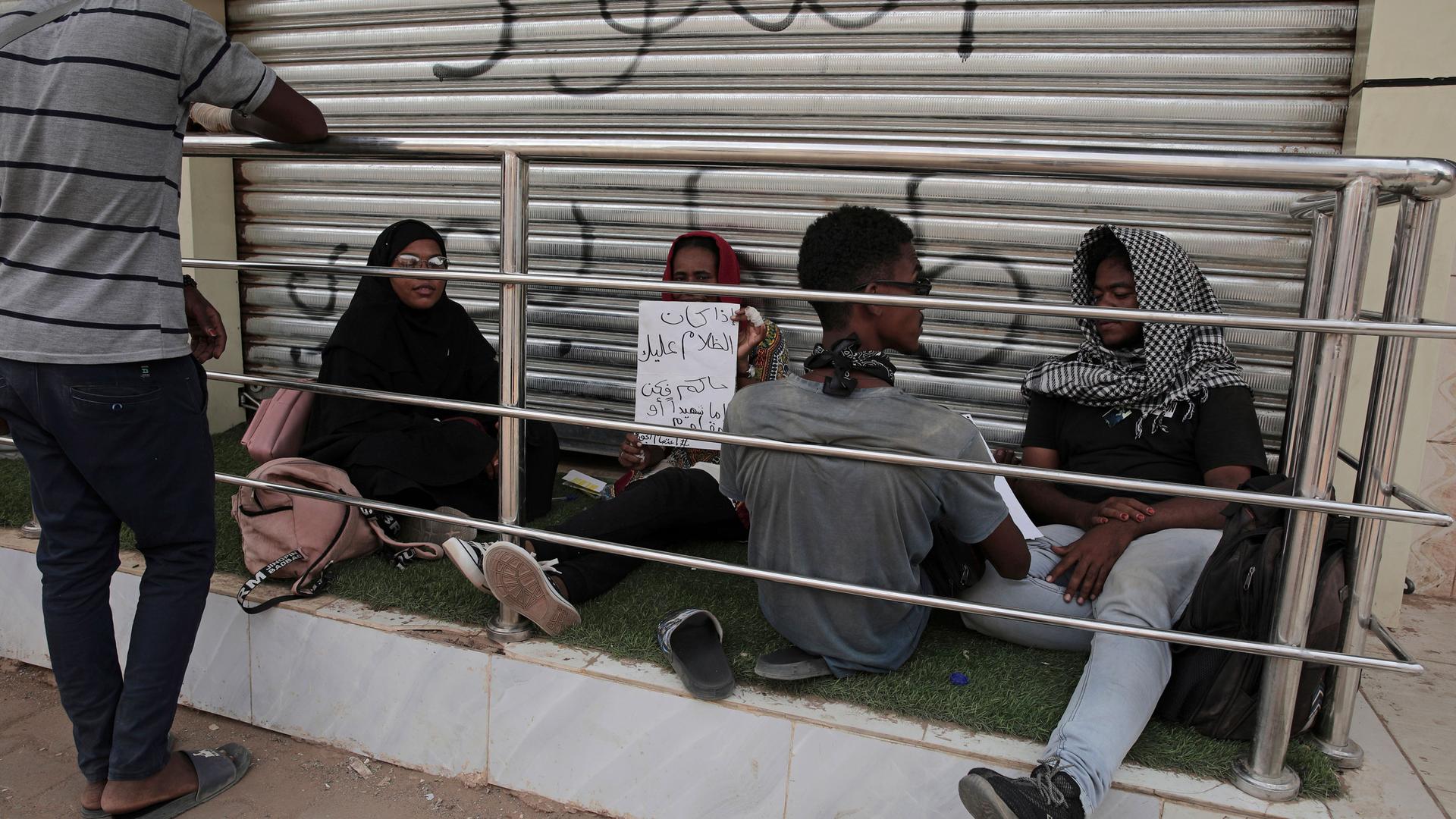Military leaders in Sudan have maintained tight control over the government there ever since a coup late last year.
This week, coup leader General Abdel Fattah al-Burhan said he would support a full transition back to civilian rule in Sudan.
But the offer was promptly rejected by the political opposition.
“We do not trust, nor do we believe the military,” Sudanese activist Daliah Abdel-Moneim told The World’s Marco Werman.
“Everything they’ve promised or they said they would do, they basically haven’t,” she said.
Related: Sudanese protester to military: ‘Our numbers are too big to be ignored’
In televised statements aired on Sudan’s state television, Burhan also promised that he will dissolve the sovereign council that he leads after a new transitional government is formed.
But Sudan’s leading pro-democracy group, the Forces for the Declaration of Freedom and Change, dismissed Burhan’s promises as “a clear maneuver and a tactical pullback that ostensibly accepts the idea of having the military return to the barracks but practically deprives it of all meanings.”

Moneim explained that Sudan has been in a state of political turmoil ever since the October 25 military coup, when Burhan took power from civilian leader Abdalla Hamdok’s transitional government.
Recent pro-democracy demonstrations in Khartoum, the capital, have turned violent with demands for the military to return to its defense role and leave governance to civilians.
Protesters could be heard chanting “Go back to the barracks,” in a plea to the military to step down.
On Tuesday, Sudanese security forces descended on an anti-coup sit-in to try and disperse protesters in Khartoum, wounding at least 11 people, a medical group said.
“The protests are basically saying the military goes back to what it’s supposed to do, which is … to protect the country, but not to have any role in governance,” Moneim said.
She pointed out that the military has a lot of economic interests at stake that keeps them from loosening their grip on power.
“The opposition is refusing to negotiate or for them to have any role in any future government,” she said.
“We as people have been demanding a purely civilian transitional government. … For the country to move forward, they need to step back.”
Moneim said that protesters have not let up since longtime dictator Omar al-Bashir was ousted three years ago and that same spirit fuels recent protests.
“I’m in awe because the numbers never decrease. They’re always out. There is the same passion. It’s the same belief that they deserve better, that they should get better than what they already have. So that’s one of the things that keeps me going — that keeps me optimistic.”
Related: Sudan’s democratic revolution continues to take a heavy toll on citizens
AP contributed to this report.
